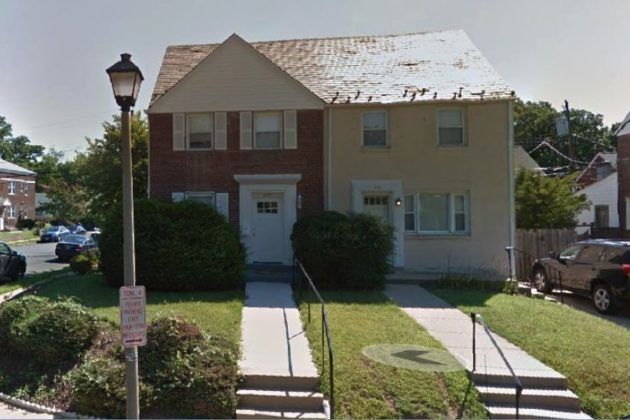
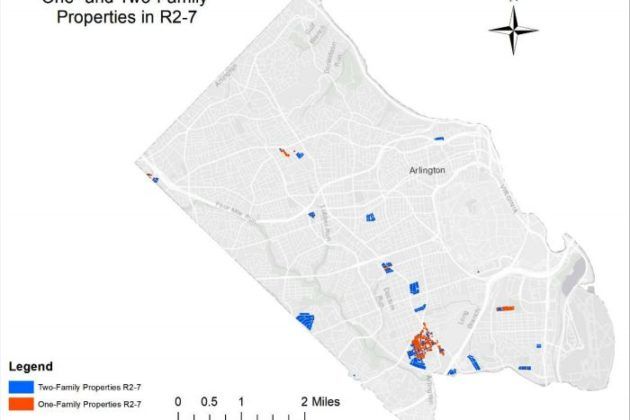
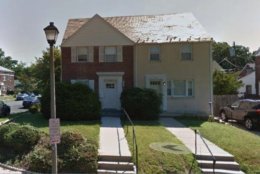
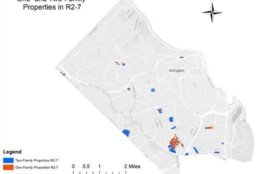
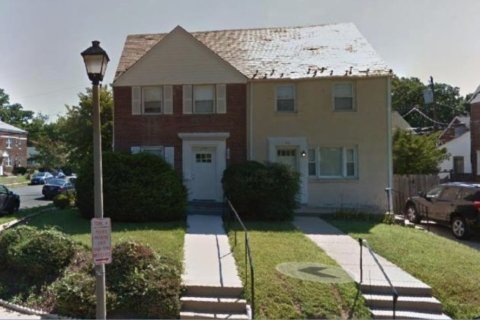
The Arlington County Board has signed off on some zoning changes to make it easier for the owners of older townhouses and duplexes to renovate or expand their homes.
The Board voted unanimously yesterday (Tuesday) to amend the county zoning ordinance to allow for more changes to “nonconforming homes” — structures built before the county’s zoning rules took effect back in 1942 that might not match current standards. The move will simultaneously remove some headaches for certain homeowners and help preserve affordable housing options for the county’s middle class.
The county’s old rules have frequently frustrated the owners of certain types of homes, who were previously barred from commissioning even simple renovations without enduring a lengthy county appeals process. That incentivized tear-downs over renovations, which in turn reduced the county’s stock of market rate affordable housing.
“This is the kind of stock we hope will age over time and become more affordable,” Board Chair Katie Cristol said Tuesday. “I feel so strongly that this is a move for the better, not only for these individual homeowners, but for the preservation of this stock, that will allow the current and next generation of Arlington’s middle class to move in and own a piece of this community, or rent a piece of this community.”
County planner Kellie Brown told the Board that the changes could allow for interior “by right” renovations at more than 600 homes, which won’t require extensive county review, and exterior additions or expansions at roughly 1,500 partially detached homes or townhouses. While the changes will impact all nonconforming homes in areas zoned “R2-7,” county staffers say that the bulk of the impacted houses are located along Lee Highway, Columbia Pike, Wilson Boulevard, and in Nauck.
John Quirk, who owns a duplex with his wife in the North Highlands neighborhood near Rosslyn, counts himself among the homeowners who plan to take advantage of the change. He launched a petition urging the Board to make just these sort of zoning changes last December, after the county’s Board of Zoning Appeals denied his family’s attempts to convert an unused attic into a third-story bedroom.
“At first we didn’t even know you were prevented from doing that, so we were really frustrated,” Quirk told ARLnow. “But this is just an example of the government working for people. The Board was very receptive to all this.”
Quirk says he worked with his neighbors and other homeowners to make the Board aware of these challenges, and he credits the county’s “measured approach” in studying the issue in more detail before moving ahead with the changes.
He also lauded the Board for living up to its stated goal of preserving affordable housing in the county, noting that he and his wife were considering moving elsewhere in Northern Virginia, as they “can’t afford a $1.1 million house in Lyon Village.” Quirk fully expects that plenty of others have faced the same problems maintaining a reasonable “work-life balance” of commuting into D.C. while coping with Arlington’s rising housing costs, and he looks forward to starting work on his own duplex sometime early next year.
“By living in these smaller homes, we’re a demographic that creates population density,” Quirk said. “And that makes Arlington the great, walkable community that it is.”
Quirk noted that he encountered virtually no opposition during his push for the zoning changes, and Board member Erik Gutshall similarly lauded the effort’s “broad community support” Tuesday.
The lone complaints about the issue came courtesy of local activist and frequent county government critic Jim Hurysz, who charged that allowing more renovations will actually drive up the prices of the homes in question and hurt the very middle-class residents the county hopes to help.
“Mr. Gutshall ought to be very happy at least, as he owns a construction company,” Hurysz said.
While the affordable housing advocates with the Alliance for Housing Solutions agree that there is “some possibility that streamlining additions to two-family homes may increase their values, and thus reduce affordability,” they too supported the changes as a key way to preserve older homes.
“We believe that the typical arrangement and size of the homes and housing type itself will help maintain its relative affordability over time, particularly when compared to the typical single-family home in Arlington,” Executive Director Michelle Winters wrote in an Oct. 18 letter to the Board. “Furthermore, these kinds of changes can help provide more opportunities for middle-income households to stay in Arlington to raise families rather than leaving in search of other housing options.”







